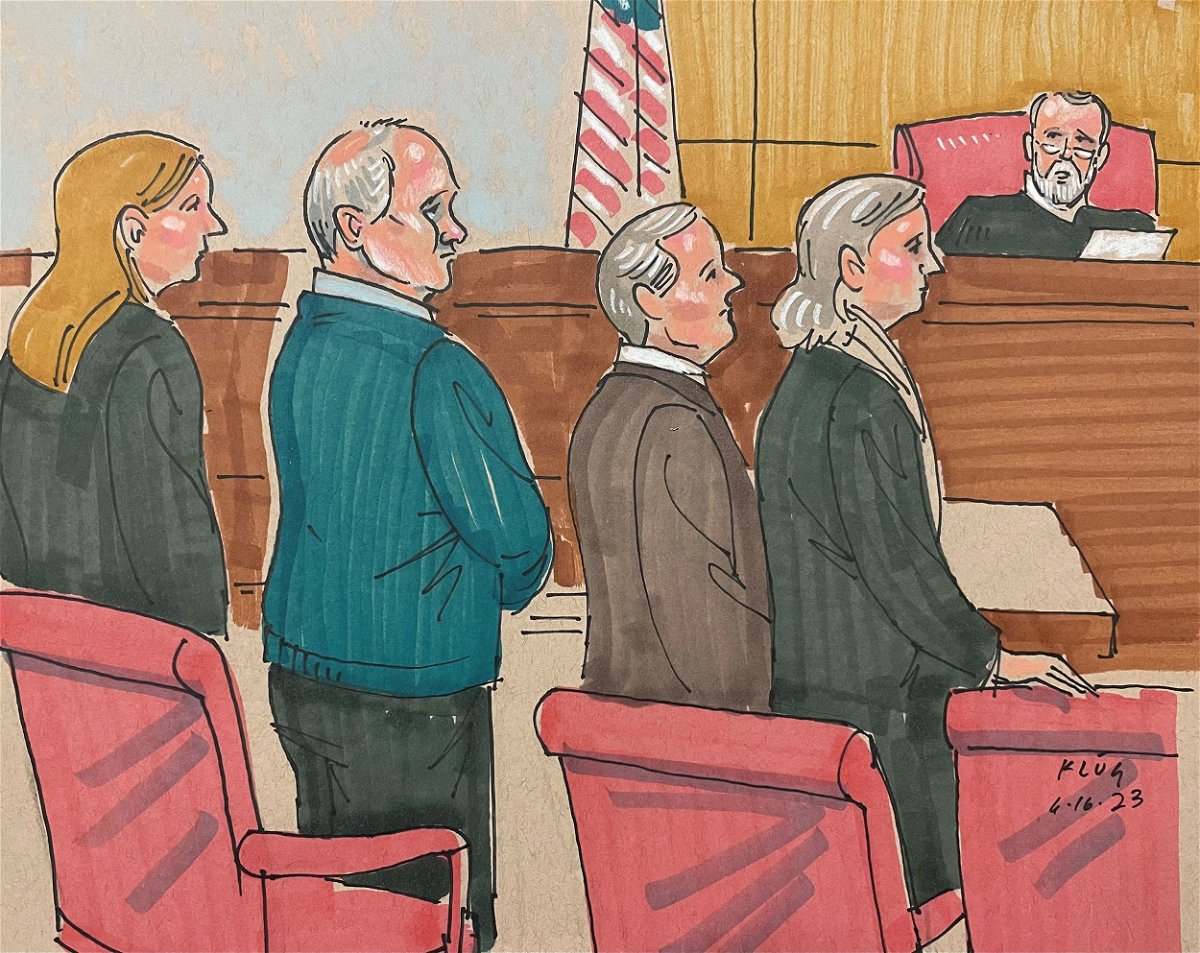Pittsburgh synagogue gunman was ‘blatantly psychotic’ and viewed himself as hero, psychologist testifies

Robert Bowers was convicted of all 63 counts against him and could face the death penalty for the mass shooting at Pittsburgh's Tree of Life synagogue in 2018.
By Sabrina Souza and Eric Levenson, CNN
(CNN) — The Pittsburgh synagogue shooter was “blatantly psychotic” and believed he should have been rewarded with medals and a parade for the attack, a forensic psychologist who examined him last year testified at his death penalty trial on Thursday.
“He tried not to express this very much, but he actually felt hurt that there was no parade for him for his warrior-like behavior,” said Dr. Richard Rogers, who evaluated the gunman over four days last September and November.
“He also wanted medals,” Rogers said. “The parade was far stronger than the medals, but he really felt he should have a parade.”
“He felt he had done something in his mind that might be seen as heroic,” he added.
Rogers was the second doctor in as many days to describe the gunman’s schizophrenia and delusional thinking. A neurologist who also examined Bowers testified Wednesday that he made several suicide attempts as a young man, was involuntarily committed multiple times and has schizophrenia and epilepsy.
“He moves through the world not assessing the world correctly and under a sense, under a feeling, under a vague feeling of threat and paranoia,” Dr. Siddhartha Nadkarni testified. “I think he has delusional beliefs. I don’t think he’s able to process or interpret information correctly.”
The medical testimony comes as defense attorneys make the case to the federal jury that Bowers had significant mental health issues that should lead to a sentence of life in prison rather than the death penalty. The prosecution has countered by arguing the mass shooting showed extensive planning and a clear intent that, in his own words, “All Jews had to die.”
Bowers, 50, was found guilty on June 16 of all 63 charges against him for killing 11 worshippers and wounding six others at Pittsburgh’s Tree of Life synagogue in October 2018.
Twenty-two of those counts were capital offenses, so he is eligible for the death penalty at this second part of the trial, known as the punishment phase. This portion of the trial is broken up into two parts: the eligibility phase, which was expected to last a few days, and the sentencing phase, expected to last four to five weeks.
The defense did not call any witnesses in the guilt phase of the trial, but they called four doctors to the stand on Tuesday and one doctor on Wednesday.
Neurologist describes Bowers’ mental health issues
Nadkarni, the neurologist, testified Wednesday he interviewed Bowers for more than four hours in September 2021 and reviewed his medical records.
The doctor said he thinks Bowers expressed further antisemitic ideas during the examination three years after the shooter undertook the deadliest attack on Jewish people in the US.
“I don’t want to get it wrong, but I think he was talking about people drinking blood and killing children,” Nadkarni said under cross-examination.
Nadkarni reviewed records that showed serious psychiatric issues from a young age.
“(It’s) very unusual to see such severe psychiatric history in a child,” Nadkarni testified while examining his medical records. “He had something wrong going on with his brain at a very young age, that’s what it made me realize.”
Medical records from 1985 indicate Bowers “threatened to kill himself” at age 13 and had a “suicidal gesture” at age 10. He was involuntarily committed at age 16 and attempted suicide at age 17, the records show. He was committed in 1990 for repeated suicide attempts, according to a police report, and involuntarily committed again in 2004, the doctor testified.
“He has a very serious mental health history from a very young age,” Nadkarni said.
In the evaluation, Bowers described instances of visual and audio hallucinations as well as panic attacks. The doctor said Bowers believed ink was being absorbed into his body, which Nadkarni described as a “profound delusion” that is associated with schizophrenia.
Bowers had issues with memory in his exam and failed a screening test in which he was asked to remember five basic objects after five minutes. However, he remembered rigid bits of information, such as numbers, dates, license plates and passwords, and was “almost obsessively focused on these things,” the doctor testified.
He had poor eye contact and a flat and unreactive affect, very poor insight and judgment and trouble smelling different scents, Nadkarni testified.
“So many things in this exam point to front lobe and temporal lobe dysfunctions,” he testified.
In cross-examination, prosecutors asked Nadkarni about some notes he made during his interview with Bowers that did not make the final written report.
Nadkarni wrote in his notes, “He said when the shooting stopped, he was ‘in the war now.’” Bowers also said, “They were just silhouette targets,” in reference to the shooting victims, according to the doctor’s notes.
“(He) didn’t see these people as people,” Nadkarni testified.
Nadkarni also said despite the diagnoses, Bowers was capable of carrying out the shooting. “I don’t think he’s incapable of planning it out, but I think the reasons for planning it out are not reliable in his mind – in his brain,” the doctor testified.
The-CNN-Wire
™ & © 2023 Cable News Network, Inc., a Warner Bros. Discovery Company. All rights reserved.